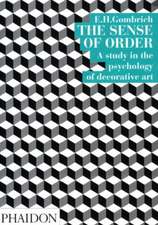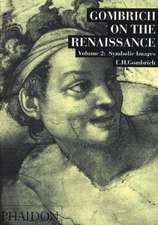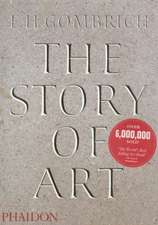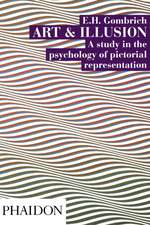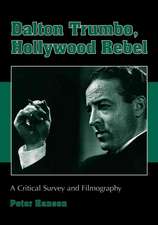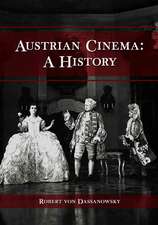Gombrich on the Renaissance, vol. 3
Autor E. H. Gombrichen Limba Engleză Paperback – 1994
Whether discussing the rendering of light and lustre, the working methods of Leonardo da Vinci or the principles of criticism, the author's analyses and interpretations are underpinned by a deep conviction that, despite the apparent abandonment of the Renaissance ideals in the twentieth century, questions about traditions, values and standards are still of fundamental importance. This wider concern gives these essays a continuing vitality, not only for students but also for anyone interested in art and culture.
Preț: 289.76 lei
Nou
Puncte Express: 435
Preț estimativ în valută:
55.45€ • 57.68$ • 45.78£
55.45€ • 57.68$ • 45.78£
Carte tipărită la comandă
Livrare economică 14-28 aprilie
Preluare comenzi: 021 569.72.76
Specificații
ISBN-13: 9780714820118
ISBN-10: 0714820113
Pagini: 266
Dimensiuni: 170 x 244 x 15 mm
Greutate: 0.45 kg
Editura: Phaidon
ISBN-10: 0714820113
Pagini: 266
Dimensiuni: 170 x 244 x 15 mm
Greutate: 0.45 kg
Editura: Phaidon
Notă biografică
Sir Ernst Gombrich was one of the greatest and least conventional art historians of his age, achieving fame and distinction in three separate spheres: as a scholar, as a popularizer of art, and as a pioneer of the application of the psychology of perception to the study of art. His best-known book, The Story of Art - first published 50 years ago and now in its sixteenth edition - is one of the most influential books ever written about art. His books further include The Sense of Order (1979) and The Preference for the Primitive (2002), as well as a total of 11 volumes of collected essays and reviews.
Gombrich was born in Vienna in 1909 and died in London in November 2001. He came to London in 1936 to work at the Warburg Institute, where he eventually became Director from 1959 until his retirement in 1976. He won numerous international honours, including a knighthood, the Order of Merit and the Goethe, Hegel and Erasmus prizes.
Gifted with a powerful mind and prodigious memory, he was also an outstanding communicator, with a clear and forceful prose style. His works are models of good art-historical writing, and reflect his humanism and his deep and abiding concern with the standards and values of our cultural heritage.
Gombrich was born in Vienna in 1909 and died in London in November 2001. He came to London in 1936 to work at the Warburg Institute, where he eventually became Director from 1959 until his retirement in 1976. He won numerous international honours, including a knighthood, the Order of Merit and the Goethe, Hegel and Erasmus prizes.
Gifted with a powerful mind and prodigious memory, he was also an outstanding communicator, with a clear and forceful prose style. His works are models of good art-historical writing, and reflect his humanism and his deep and abiding concern with the standards and values of our cultural heritage.




